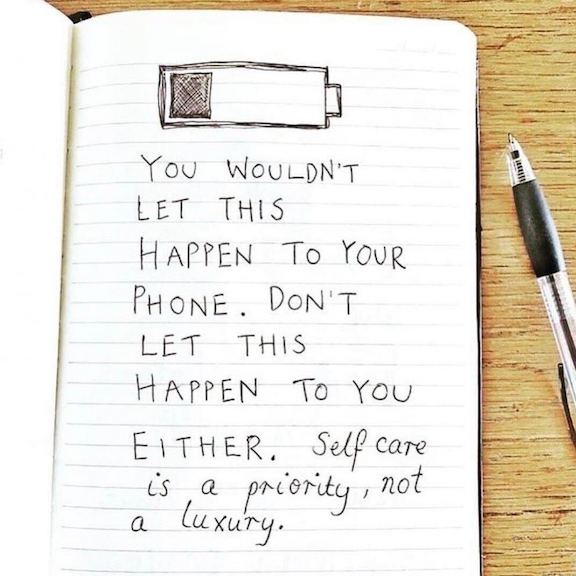When your child suffers with mental health struggles, you suffer alongside as their parent.
There’s nothing worse than knowing your kiddo is hurting and not knowing how to help. Long gone are the days when a Band-Aid, cuddle or “kiss it and make it better” could dry their tears and get them giggling again.
Bigger kids have bigger problems and feelings – and teens today are suffering. Did you know one in every six teens has thought about suicide?
Parents of tweens and teens need a whole new set of skills we may never have had to develop or use before. Sometimes, therapy alone just isn’t enough to help a kiddo with anxiety, depression, self-harm (also known as non-suicidal self-injury or NSSI) or suicidal ideation.
And all of this, especially self-harm and suicidal ideation, is extremely challenging for both kids and their parents.
So what does help look like?
School is a big source of stress for a lot of kiddos, so your child might need support in the form of accommodations at school. This can include a 504 plan or IEP (Individualized Education Plan) to help accommodate their needs and reduce school-based stress and anxiety. Many people don’t realize that you can get a 504 or IEP for mental health needs such as anxiety or neurodivergent needs like ADHD, but you absolutely can.
Sometimes, a different type of school or program is needed altogether. Kids with anxiety, autism or ADHD do well with smaller classes, individualized learning, fewer distractions/less overwhelm from things like changing classes, and fewer surprises like pop quizzes. Our school district offers OASIS, an alternative learning program that has been a literal godsend for our kiddo and family.
In addition to changes with school, your child may benefit from an evaluation and prescription for psychiatric medications to help correct a chemical imbalance in their brain. If you’re thinking “no way, not for my child,” I get it. I used to be super against meds for kids, but time and experience have taught me that sometimes they are helpful, necessary and even life-saving.
Just as a child with diabetes needs insulin, sometimes children with depression or anxiety need meds to boost the chemicals their brains aren’t making enough of. There’s no shame in this, just like there’s nothing wrong with taking Tylenol for a headache!
What if school adjustments, therapy AND meds still aren’t enough? Many kiddos need more help than that. I’ve already written about what to do if kids experience a mental health crisis. We are fortunate to have a great pediatric psychiatric crisis facility here in Columbus.
Sometimes, a child has ongoing, chronic mental health needs that a crisis intervention facility or short-term hospitalization cannot meet.
The information below is intended to help parents who are going through the long-term, unthinkable and “unspoken, invisible pain” of a child who is suffering from mental health struggles for whom therapy and meds did not immediately help.
As hard as it can be to find the right therapist or psychiatrist, it can be even harder to find an additional, stepped-up level of ongoing care beyond therapy and meds. I’m sure this is true for adults, but it’s especially true for children and adolescents right now.
There are waiting lists for next-level behavioral care at Nationwide Children’s Hospital that are six months long or even longer. That’s how desperate our community is for mental health help for kids.
And this problem is not just in Columbus. A nurse from our insurance company told us that there is a pediatric mental health crisis all over this country. An influencer I follow in Oregon is desperate to find next-level mental health help for his kids, but there is none to be had in that entire state.
Parents everywhere are desperate to find solutions beyond therapy and meds for their kids; in some places, it can be hard even to find therapy or someone to prescribe psychiatric meds.
You may have to wait almost a year – or even longer – to get into an intensive community-based or residential mental health treatment program. While you wait, you may have to cobble together some wrap-around therapeutic supports on your own. Here are some ideas:
- Find a therapist and psychiatric meds provider your child likes and trusts. It may take trying a handful before you find a good fit. Just be patient and keep trying if you haven’t found the right therapist or type of therapy yet. There are some great counselors out there. Your kiddo may need an appointment every week or every other week – try different things until you figure out what works best for your family.
- Study and learn about mental health. I embarked on a personal learning journey to get smarter and be more helpful to my loved ones during hard times. That’s part of why I underwent a multiple-month training program with the Trevor Project to be a crisis counselor; I wanted to have those skills on deck for whatever comes our way. Now, I even work in kids’ mental health, further growing my knowledge and skills as part of my job. Visit The Kids Mental Health Foundation for our helpful, free resources!
- Get more comfortable talking about suicide and suicidal thoughts. Children often hide these thoughts from parents because they don’t think we can handle it – and in many cases, they’re right. If a parent freaks out, cries, yells or invalidates their feelings, kids are likely to avoid bringing up tough topics again. Only through reading, practicing and role-playing can you learn to talk about suicide and other tough topics calmly without getting overly emotional. My Trevor Project training helped me a ton with this and I can’t recommend it enough.
- Medical professionals are a great resource, but no one knows our kids as well as their loving parents. What works for some children may not work for others – and may even make things worse. I continued to read and research about behavioral symptoms and behaviors until I discovered something that made sense for our family. Learning about low-demand parenting changed all our lives immensely for the better.
- Learn and practice coping strategies yourself, then model these behaviors for your child. Coping strategies are calming things to do when there is a crisis or trigger present. For a tween or teen, common coping strategies might be talking to friends, writing in a notebook, listening to music, cuddling a pet, going for a walk or taking a shower. As the caregiver of a child who is struggling, it’s critical to have your own coping skills as well. Above all else, we must remain calm – even (and especially!) in the face of our child’s crises.
- Model self-care practices with your child. Self-care practices are regular, day-to-day activities to help maintain emotional health when no immediate stressors are present. Those might include physical exercise, getting outdoors in the sunshine, spending time with friends, having a regular meditation practice, doing deep breathing exercises or eating healthy and getting enough sleep. Self-care is just as essential for caregivers as it is for our kiddos.
- Know the numbers for various suicide and crisis hotlines, as well as non-crisis warmlines, and keep them posted in your home. Make sure your kiddo has those numbers in their phone so that they can share them with friends who may need them. Sometimes, talking through emotional triggers with a calm, caring and non-judgmental stranger can truly make a difference. There is no downside to calling a crisis line; they save lives every day. I’m particularly partial to the Trevor Project, but you can also dial or text 988 to reach the National Suicide and Crisis Lifeline or visit warmline.org to find a warmline in your area.
- Above all, remember that mental health struggles are not your child’s fault OR your fault. It is common for parents or caregivers to feel frustrated, sad, shame, blame or even anger when their child is struggling. That’s normal – and when it comes to mental health stuff, it’s all too easy for us to feel like it’s all our fault. Anxious kiddos may feel like a burden. Sensitive kiddos may feel responsible for their parents’ emotions or frustrations. Do your best to reassure your child often and validate them for each and every positive behavior.
I know how incredibly painful and difficult it is to be the parent of a struggling child, tween or teen. I can tell you that one of the biggest things that helped us, in addition to everything I shared above, is simply the passage of time. Each year, your child grows a little more mature and better able to cope with the challenges and emotional struggles that life sends our way. Each year, they realize that they have survived all of their darkest days and that helps them gain the confidence that they can do hard things and will survive whatever comes next.
If you ever need someone to talk to, please reach out to me in the comments below or on Instagram or Facebook. I’ve had people reach out to me with kindness and empathy during some of our hardest days, and it meant the world. It would be my pleasure to be able to give back and share hope with other parents.
In the immortal words of Ted Lasso, sometimes we all just need to BELIEVE.




